What Are Your Chances of an IRS Audit? 15 Audit Red Flags
These red flags could increase your chances of the IRS selecting your return for audit.

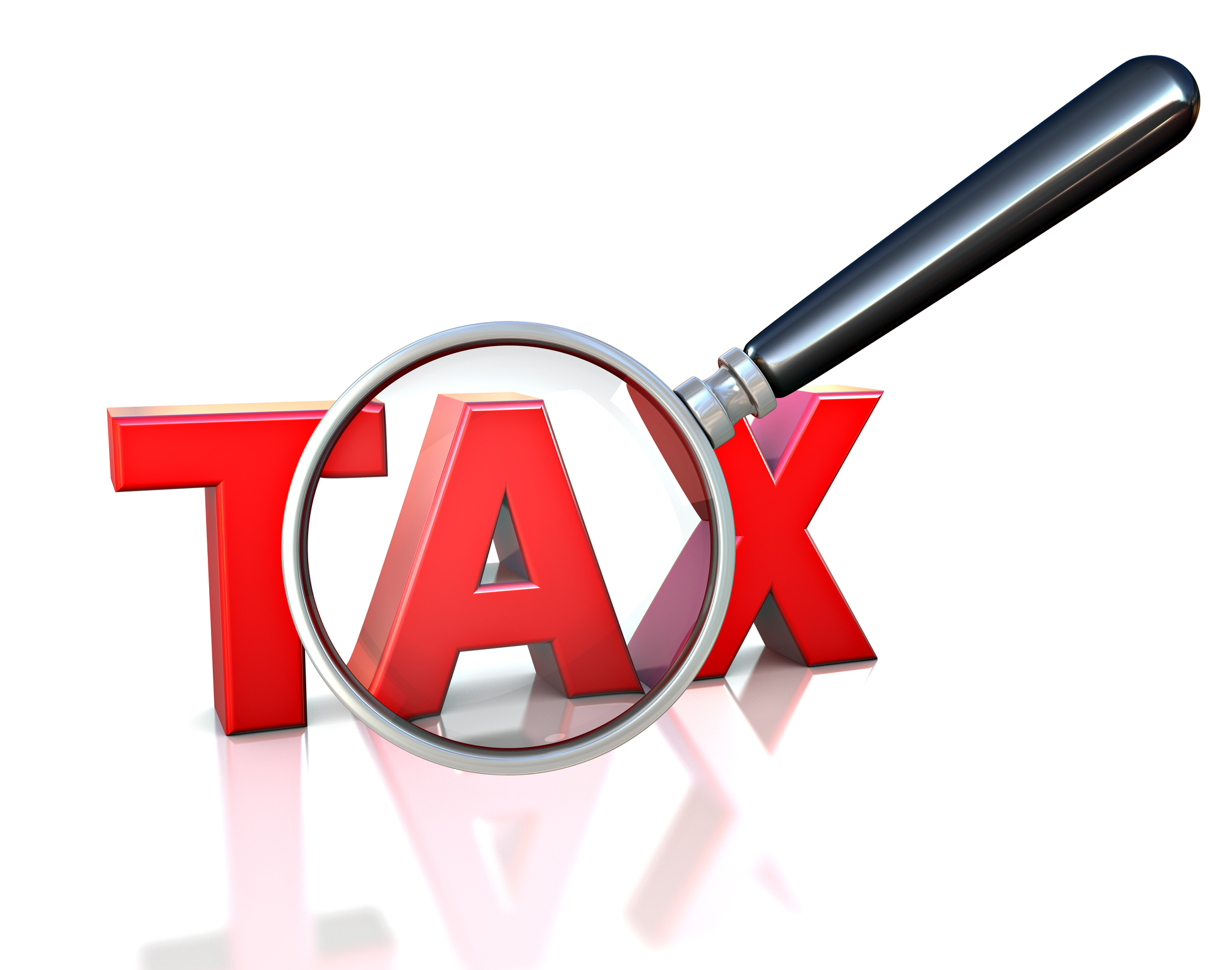
Profit and prosper with the best of Kiplinger's advice on investing, taxes, retirement, personal finance and much more. Delivered daily. Enter your email in the box and click Sign Me Up.
You are now subscribed
Your newsletter sign-up was successful
Want to add more newsletters?

Delivered daily
Kiplinger Today
Profit and prosper with the best of Kiplinger's advice on investing, taxes, retirement, personal finance and much more delivered daily. Smart money moves start here.

Sent five days a week
Kiplinger A Step Ahead
Get practical help to make better financial decisions in your everyday life, from spending to savings on top deals.

Delivered daily
Kiplinger Closing Bell
Get today's biggest financial and investing headlines delivered to your inbox every day the U.S. stock market is open.

Sent twice a week
Kiplinger Adviser Intel
Financial pros across the country share best practices and fresh tactics to preserve and grow your wealth.

Delivered weekly
Kiplinger Tax Tips
Trim your federal and state tax bills with practical tax-planning and tax-cutting strategies.

Sent twice a week
Kiplinger Retirement Tips
Your twice-a-week guide to planning and enjoying a financially secure and richly rewarding retirement

Sent bimonthly.
Kiplinger Adviser Angle
Insights for advisers, wealth managers and other financial professionals.

Sent twice a week
Kiplinger Investing Weekly
Your twice-a-week roundup of promising stocks, funds, companies and industries you should consider, ones you should avoid, and why.

Sent weekly for six weeks
Kiplinger Invest for Retirement
Your step-by-step six-part series on how to invest for retirement, from devising a successful strategy to exactly which investments to choose.
As you're getting ready to file your tax return, you may be wondering about the chances that the IRS will audit your return.
Your fear might be heightened, knowing that the Biden-era Reduction Act gave the IRS $80 billion in extra funds over 10 years, with a large chunk of that money to be used by the agency for increased enforcement activities. This money is in addition to the IRS's annual funding.
But a lot has happened since then. Here is just a sampling.
- Congress has clawed back most of the IRS's extra money for enforcement.
- The IRS has lost about 25% of its workforce since January 2025, including many employees in the enforcement area.
- IRS leadership is in somewhat of a turmoil. The agency is on its seventh commissioner or acting commissioner since January 1, 2025.
- And the White House and congressional Republicans have introduced proposals to drastically slash the IRS's annual budget, including severe cuts to the agency's enforcement activities.
Most people can breathe easily because the majority of individual returns escape the audit machine.
In recent years, the IRS has audited significantly less than 1% of all individual tax returns, and we expect this figure to continue to decline in the near future.
Also, most audits are handled solely by mail, meaning taxpayers selected for an audit typically never actually meet with an IRS agent.
Look for these correspondence audits to increase. They are less costly and require fewer IRS employees to work on them, as compared with an in-office audit or a field examination.
But this doesn't mean it's a tax cheat free-for-all. The bad news is that your chances at the unenviable audit lottery escalate (sometimes significantly) depending on various factors, including the amount of income you report, the complexity of your return, the types and amounts of deductions or other tax breaks you claim, whether you're engaged in a business, or whether you own foreign assets.
Math errors could also draw an extra look from the IRS, but they usually don't lead to a full-blown exam.
In the end, there's no sure way to predict an IRS audit, but these 15 audit red flags could increase your chances of drawing unwanted attention from the federal tax agency.

1. Failing to report all taxable income
The IRS gets copies of all the 1099s and W-2s you receive, so be sure you report all required income on your return. IRS computers are pretty good at cross-checking the forms with the income shown on your return.
A mismatch sends up a red flag and causes the IRS computers to spit out a bill that the IRS will mail to you (these letters don't count as audits for purposes of the IRS's audit rate). If you receive a 1099 showing income that isn't yours or listing incorrect income, get the issuer to file a correct form with the IRS.
Report all income sources on your 1040 return, whether or not you receive a form such as a 1099. For example, if you get paid for walking dogs, tutoring, driving for Uber or Lyft, giving piano lessons, or selling crafts through Etsy, the money you receive is taxable.

2. Making a lot of money
While the overall individual audit rates are extremely low, the odds increase significantly as your income goes up (especially if you have business income).
According to IRS audit statistics, about 0.4% of total individual returns get audited by the IRS. This number jumps to 1% for filers who report total positive incomes between $1 million and $5 million, 2.3% for filers reporting total positive incomes between $5 million and $10 million, and about 8% for filers who report total positive income of $10 million or more.
We're not saying you should try to make less money — everyone wants to be a millionaire. You just need to understand that the more income shown on your return, the more likely it is that the IRS will be knocking on your door.
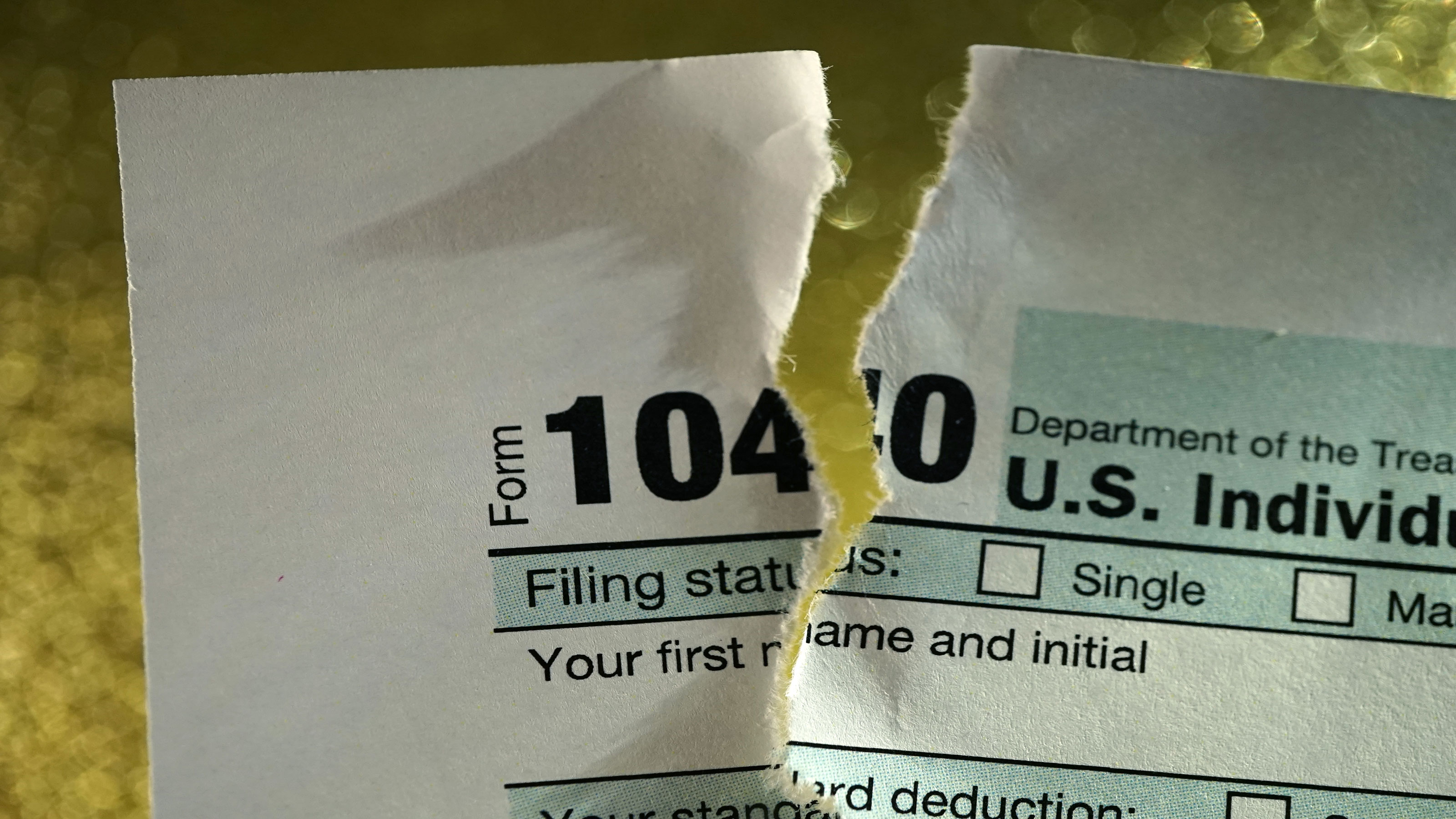
3. Non-Filers
The IRS hasn't always been diligent in pursuing individuals who don't file required tax returns. In fact, the agency has been chastised by Treasury inspectors and lawmakers on its years-long lack of enforcement activity in this area. So, it shouldn't come as a surprise that high-income non-filers are on the list of the IRS's strategic enforcement priorities.
The primary emphasis is on individuals who received income in excess of $100,000 but didn't file a tax return. Collections officers will contact taxpayers and work with them to help resolve the issue and bring them into compliance. People who refuse to comply can be subject to levies, liens, or even criminal charges.

4. Taking higher-than-average deductions, losses or credits
If the deductions, losses, or credits on your return are disproportionately large compared with your income, the IRS may want to take a second look at your return. Taking a big loss from the sale of rental property or other investments can also spike the IRS's curiosity. Ditto for bad debt deductions or worthless stock.
But if you have the proper documentation for your deduction, loss or credit, don't be afraid to claim it. Don't ever feel like you have to pay the IRS more tax than you actually owe.
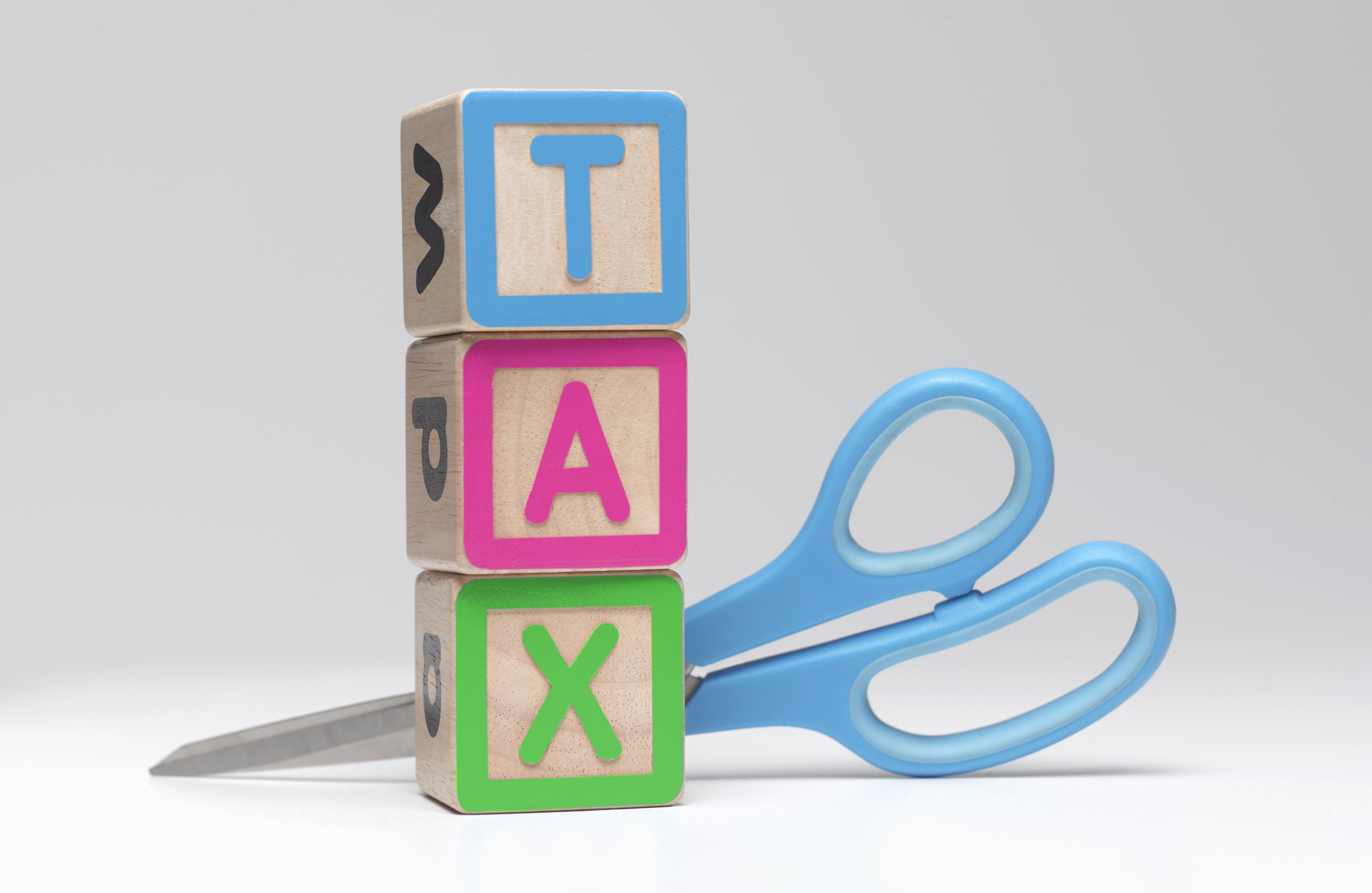
5. Claiming refundable tax credits
The IRS is consistently plagued by taxpayers taking improper refundable tax credits. For instance, the IRS estimates it wrongly refunded $21.9 billion in earned income tax credits to taxpayers in fiscal year 2023…a 33.5% improper payment rate. The IRS attributes these erroneous payments in part to complexity in the tax rules, unscrupulous or incompetent preparers, the high turnover of taxpayers eligible to take the credit, and refund fraud.
The IRS conducts inquiries into these erroneous credits mainly through correspondence audits, meaning the IRS will send a letter to the taxpayer who would then need to respond. Most people who are the subject of a correspondence audit never meet with an IRS worker face-to-face. Because correspondence audits are less costly for the IRS to conduct than in-person exams, and exams of refundable credits are a low-hanging fruit for the agency, we expect IRS inquiries into erroneous refundable credits to increase over the next few years.
We'll take a look below at the premium tax credit, the earned income tax credit, the refundable portion of the child tax credit, and the American Opportunity tax credit:
Premium Tax Credit
The premium tax credit, which is over 10 years old, helps individuals pay for health insurance they buy through the marketplace. Individuals who are eligible for Medicare, Medicaid, or other federal insurance do not qualify. Nor do people who can get affordable health coverage through their employer.
The credit is estimated when you go on a marketplace website like healthcare.gov to buy insurance. You can have the credit paid in advance directly to the health insurance company to lower your monthly payments. You then generally have to attach IRS form 8962 to your tax return to compute your actual credit, list any advance subsidy paid to the insurer, and then reconcile the two figures. If your credit exceeds the premium advances, you can claim the excess on your Form 1040. If the credit is less than the advances, most people will need to repay all or part of the excess.
Erroneous reporting of the health premium credit is an audit red flag. The IRS’s computers flag returns showing incomes above the limit to take the credit. The IRS is also on the prowl for people who elected to have their subsidy paid directly to the insurance company but did not file an income tax return to reconcile the advances with the actual credit.
Earned Income Tax Credit
Millions of lower-income workers with children claim the earned income tax credit (EITC) on their Form 1040. But the eligibility rules are complicated, leading to common mistakes. For example, many errors involve the eligibility of a qualifying child.
A qualifying child must be a son, daughter, stepchild, foster child, sibling, niece, nephew, or grandchild who lived with you for more than half the year and is under 19.
There are two exceptions to the age requirement: Full-time students may be younger than 24, and permanently and totally disabled children can be any age. Additionally, each qualifying child that you claim for the EITC must have a Social Security Number.
Refundable Child Credit
The total child tax credit is worth $2,200 per kid under 17 claimed as a dependent on your return. The child must be related to you and generally live with you for at least six months during the year. He or she must be a citizen, national, or resident alien of the United States and have a Social Security number.
The credit begins to phase out if your modified adjusted gross income (AGI) is above $400,000 on a joint return, or over $200,000 on a single or head-of-household return.
Up to $1,700 of the credit is refundable for some lower-income individuals with children, provided the taxpayer has at least $2,500 of earned income.
American Opportunity Tax Credit
College is expensive, and the tax law gives individuals some tax breaks to help with the cost. One of these is the American Opportunity Tax Credit.
The AOTC is worth up to $2,500 per student for each of the first four years of college. It's based on 100% of the first $2,000 spent on qualifying college expenses and 25% of the next $2,000. And 40% of the credit is refundable, meaning you get it even if you don't owe any tax. This tax saver begins to phase out for joint-return filers with modified adjusted gross incomes above $160,000 ($80,000 for single filers). The student must be in school at least half-time. Eligible expenses include tuition, books and required fees, but not room and board.
Among the AOTC problem areas that the IRS focuses on:
- Taking the credit for more than four years for the same student
- Omitting the school's taxpayer ID number on Form 8863 (the document used to claim the AOTC)
- Taking the credit without receiving Form 1098-T from the school, and
- Claiming multiple tax breaks for the same college expenses.

6. Taking large charitable deductions
We all know that charitable contributions are a great write-off and help you feel all warm and fuzzy inside. However, if your charitable deductions are disproportionately large compared with your income, it raises a red flag.
That's because the IRS knows what the average charitable donation is for folks at your income level. Also, if you don't get an appraisal for donations of valuable property, or if you fail to file IRS Form 8283 for noncash donations over $500, you become an even bigger audit target.
And if you've donated a conservation or façade easement to charity, or if you are an investor in a partnership, LLC or trust that made such a donation, your chances of hearing from the IRS rise exponentially. Battling abusive syndicated conservation easement deals is a strategic enforcement priority of the tax agency.
Congress has even recently stepped in to disallow charitable deductions in the most egregious conservation easement cases.

7. Running a business
Schedule C is a treasure trove of tax deductions for self-employed people. But it's also a gold mine for IRS agents, who know from experience that self-employed people sometimes claim excessive deductions and don't report all their income. The IRS looks at both higher-grossing sole proprietorships and smaller ones.
Sole proprietors reporting at least $100,000 of gross receipts on Schedule C and cash-intensive businesses (taxis, car washes, bars, hair salons, restaurants and the like) have a higher audit risk. Ditto for business owners who report substantial losses on Schedule C, especially if those losses can offset in whole or in part other income reported on the return, such as wages or investment income. Also, claiming large business deductions can raise eyebrows at the IRS, as well as claiming losses or deductions incurred between related parties.
In addition to the above, here are a few more specific areas that IRS closely looks at when auditing taxpayers who file Schedule C with their Forms 1040:
Business Use of a Vehicle
Claiming 100% business use of a vehicle is a prime audit red flag. IRS agents know that it's rare for someone to actually use a vehicle 100% of the time for business, especially if no other vehicle is available for personal use. The IRS also targets heavy SUVs and large trucks used for business, especially those bought late in the year. That's because these vehicles are eligible for more favorable depreciation and expensing write-offs.
Be sure you keep detailed mileage logs and precise calendar entries for every road trip. Sloppy recordkeeping makes it easy for a revenue agent to disallow your deduction.
Operating a Marijuana Business
The IRS is eyeing legal marijuana firms that take improper write-offs on their returns. Agents come in and disallow deductions on audit, and courts consistently side with the IRS on this issue. The IRS can also use third-party summons to state agencies, etc., to seek information in circumstances where taxpayers have refused to comply with document requests from revenue agents during an audit.
Claiming the R&D Credit
The research and development credit is one of the most popular business tax breaks, but it's also one that IRS agents have found to be prime for abuse. The IRS is on the lookout for taxpayers that fraudulently claim R&D credits and promoters that aggressively market R&D credit schemes. These promoters are pushing certain businesses to claim the credit for routine day-to-day activities and to overinflate wages and expenses in the calculation of the credit.
To be eligible for the credit, a business must conduct qualified research – that is, its research activities must rise to the level of a process of experimentation. Among the activities that aren't credit-eligible: customer-funded research, adaptation of an existing product or business, research after commercial production, and activities in which there is no uncertainty about the potential for a desired result.

8. Writing off a hobby loss
Sorry to inform you, but you're a prime audit target if you report multiple years of losses on Schedule C of Form 1040, run an activity that sounds like a hobby, and have lots of income from other sources.
The IRS is on the hunt for taxpayers who year after year report large losses from hobby-sounding activities to help offset other income, such as wages, or business or investment earnings.
The hobby loss rules are often litigated in the Tax Court. The IRS usually wins in court, partly because it tends to settle cases in which it doesn't believe it can prevail. But taxpayers have also pulled out a victory in several court cases.
To be eligible to deduct a loss, you must be running the hobby in a business-like manner and have a reasonable expectation of making a profit. If your activity generates profit three out of every five years (or two out of seven years for horse breeding), the law presumes that you're in business to make a profit, unless the IRS establishes otherwise.
The analysis is trickier if you can't meet these safe harbors. That's because the determination of whether an activity is properly categorized as a hobby or a business is then based on each taxpayer's facts and circumstances. If you're audited, the IRS is going to make you prove you have a legitimate business and not a hobby.
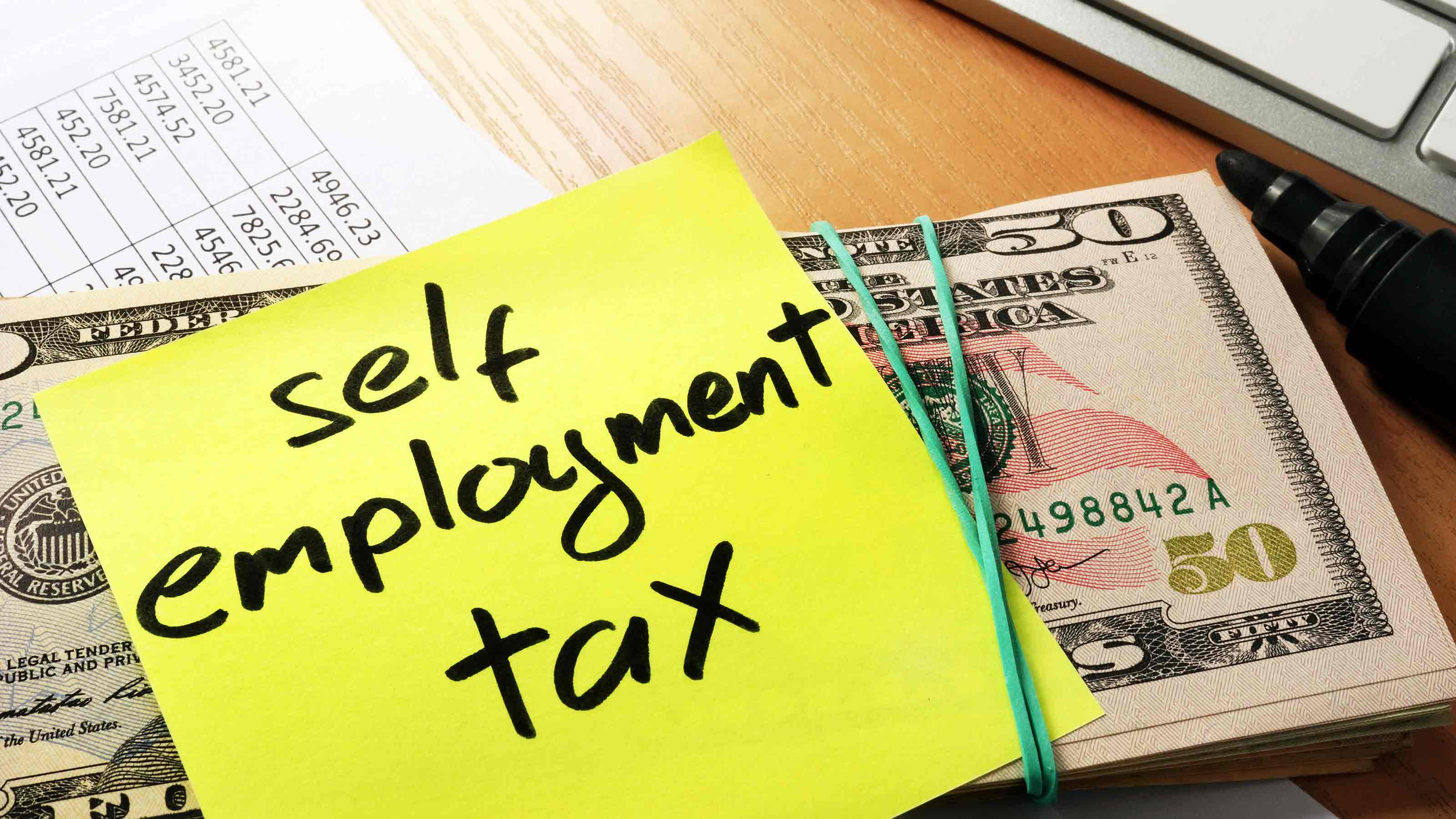
9. Failing to report certain professional earnings as self-employment income
Some limited partners and LLC members who don't file Schedule SE or pay self-employment tax are on the IRS's radar. The agency has an ongoing audit campaign involving the issue of when limited partners and LLC members in professional service industries owe self-employment tax on their distributive share of the firm's income.
In 2017, the Tax Court ruled that members of a law firm organized as a limited liability company and who actively participated in the LLC's operations and in management weren't mere investors and were liable for self-employment taxes. Just last year, the Tax Court decided that limited partners who actively participate in a limited partnership could owe self-employment tax.
That case involved a hedge fund. LLC and LP owners in law, medicine, consulting, accounting, architecture, and other professional service sectors are being eyed by IRS examiners, who have been conducting audits over the past few years.

10. Claiming rental losses
The passive loss rules usually prevent the deduction of rental real estate losses, but there are two important exceptions. First, if you actively participate in the renting of your property, you can deduct up to $25,000 of loss against your other income. This $25,000 allowance phases out as adjusted gross income exceeds $100,000 and disappears entirely once your AGI reaches $150,000.
A second exception applies to real estate professionals who spend more than 50% of their working hours and over 750 hours each year materially participating in real estate as developers, brokers, landlords, or the like. They can write off rental losses.
The IRS actively scrutinizes large rental real estate losses, especially those written off by taxpayers claiming to be real estate pros. It's pulling returns of individuals who claim they are real estate professionals and whose W-2 forms or other non-real-estate Schedule C businesses show lots of income. Agents are checking to see whether these filers worked the necessary hours, especially in cases of landlords whose day jobs are not in the real estate business.

11. Taking an early payout from an IRA or 401(k)
The IRS wants to be sure that owners of traditional IRAs and participants in 401(k)s and other workplace retirement plans are properly reporting and paying tax on distributions. Special attention is being given to payouts before age 59½, which, unless an exception applies, are subject to a 10% penalty on top of the regular income tax.
The IRS knows that a substantial number of filers make errors on their income tax returns with respect to retirement payouts, with most of the mistakes coming from taxpayers who don't qualify for an exception to the 10% additional tax on early distributions.
The IRS has a chart listing withdrawals taken before the age of 59½ that escape the 10% penalty. Some of the exceptions apply only to IRAs, some apply only to workplace retirement plans, and others apply to both.

12. Failing to report gambling winnings or claiming big gambling losses
Whether you're playing the slots, betting on the horses or trying your luck at the Powerball jackpot lottery, one sure thing you can count on is that Uncle Sam wants his cut. Recreational gamblers must report winnings as other income on the 1040 form. Professional gamblers show their winnings on Schedule C. Failure to report gambling winnings can draw IRS attention, especially if the casino or other venue reported the amounts on Form W-2G.
Claiming large gambling losses can also be risky. You can deduct these only to the extent that you report gambling winnings (and recreational gamblers must also itemize). The IRS is looking at returns of filers who report large losses on Schedule A from recreational gambling but aren't including the winnings in income. Also, taxpayers who report large losses from their gambling-related activity on Schedule C get extra scrutiny from IRS examiners, who want to make sure these folks really are gaming for a living.
Note that a new rule kicks in for 2026 returns that you would file in 2027. The ability to deduct gambling losses is further limited. Taxpayers with gambling losses can deduct only 90% of losses to the extent of reported winnings.

13. Claiming the foreign earned income exclusion
U.S. citizens who work overseas can exclude up to $130,000 of their income earned abroad on their 2025 tax return if they were bona fide residents of another country for the entire year or they were outside of the U.S. for at least 330 complete days in a 12-month span. (The 2026 exclusion amount is $132,900.) Additionally, the taxpayer must have a tax home in the foreign country. The tax break doesn't apply to amounts paid by the U.S. or one of its agencies to its employees who work abroad.
IRS agents actively sniff out people who are erroneously taking this break, and the issue keeps coming up in disputes before the Tax Court. Among the areas of IRS focus: Filers with minimal ties to the foreign country they work in and who keep an abode in the U.S. Note that the U.S. abode restriction doesn't apply to individual taxpayers who work in combat zones, flight attendants and pilots, and employees of U.S. government agencies who mistakenly claim the exclusion when they are working overseas.

14. Engaging in virtual currency or other digital asset transactions
The IRS is on the hunt for taxpayers who sell, receive, trade or otherwise deal in bitcoin or other virtual currency or other digital asset and is using pretty much everything in its arsenal. As part of the IRS's efforts to clamp down on unreported income from these transactions, revenue agents are mailing letters to people they believe have virtual currency accounts. And the IRS has set up teams of agents to work on cryptocurrency-related audits. Additionally, all individual filers must state on page 1 of their Form 1040 whether they received, sold, exchanged or otherwise disposed of a digital asset.
The tax rules treat bitcoin and other cryptocurrencies as property for tax purposes. The IRS has a set of frequently asked questions that address selling, trading and receiving cryptocurrency, calculating gain or loss, figuring tax basis when the currency is received by an employee or someone else for services, and much more.
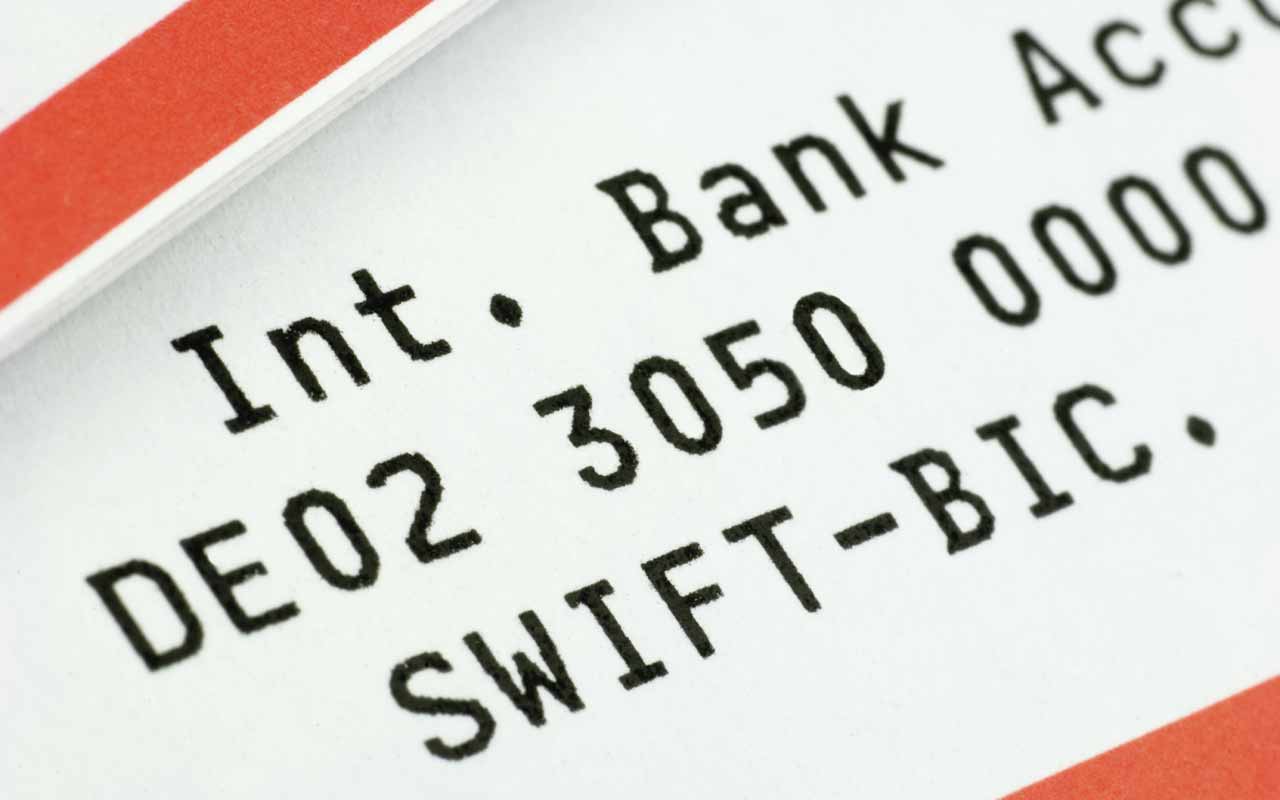
15. Failing to report a foreign bank account
The IRS is intensely interested in people with money stashed outside the U.S., especially in countries with the reputation of being tax havens, and U.S. authorities have had lots of success getting foreign banks to disclose account information.
Failure to report a foreign bank account can lead to severe penalties. Make sure that if you have any such accounts, you properly report them. This means electronically filing FinCEN Report 114 (FBAR) by April 15, 2026, to report foreign accounts that combined total more than $10,000 at any time during 2025. (Filers who miss the April 15 deadline get an automatic six-month extension to file the form.)
Taxpayers with a lot more financial assets abroad may also have to attach IRS Form 8938 to their timely filed tax returns.
Profit and prosper with the best of Kiplinger's advice on investing, taxes, retirement, personal finance and much more. Delivered daily. Enter your email in the box and click Sign Me Up.

Joy is an experienced CPA and tax attorney with an L.L.M. in Taxation from New York University School of Law. After many years working for big law and accounting firms, Joy saw the light and now puts her education, legal experience and in-depth knowledge of federal tax law to use writing for Kiplinger. She writes and edits The Kiplinger Tax Letter and contributes federal tax and retirement stories to kiplinger.com and Kiplinger’s Retirement Report. Her articles have been picked up by the Washington Post and other media outlets. Joy has also appeared as a tax expert in newspapers, on television and on radio discussing federal tax developments.
-
 The $200,000 Olympic 'Pension' is a Retirement Game-Changer for Team USA
The $200,000 Olympic 'Pension' is a Retirement Game-Changer for Team USAThe donation by financier Ross Stevens is meant to be a "retirement program" for Team USA Olympic and Paralympic athletes.
-
 10 Cheapest Places to Live in Colorado
10 Cheapest Places to Live in ColoradoProperty Tax Looking for a cozy cabin near the slopes? These Colorado counties combine reasonable house prices with the state's lowest property tax bills.
-
 Look Out for These Gold Bar Scams as Prices Surge
Look Out for These Gold Bar Scams as Prices SurgeFraudsters impersonating government agents are convincing victims to convert savings into gold — and handing it over in courier scams costing Americans millions.
-
 10 Cheapest Places to Live in Colorado
10 Cheapest Places to Live in ColoradoProperty Tax Looking for a cozy cabin near the slopes? These Colorado counties combine reasonable house prices with the state's lowest property tax bills.
-
 Avoid a Tax Surprise After Your 2026 Super Bowl Bets: A New IRS Rule to Know
Avoid a Tax Surprise After Your 2026 Super Bowl Bets: A New IRS Rule to KnowTaxable Income When Super Bowl LX hype fades, some fans may be surprised to learn that sports betting tax rules have shifted.
-
 Should You Do Your Own Taxes This Year or Hire a Pro?
Should You Do Your Own Taxes This Year or Hire a Pro?Taxes Doing your own taxes isn’t easy, and hiring a tax pro isn’t cheap. Here’s a guide to help you figure out whether to tackle the job on your own or hire a professional.
-
 Trump $10B IRS Lawsuit Hits an Already Chaotic 2026 Tax Season
Trump $10B IRS Lawsuit Hits an Already Chaotic 2026 Tax SeasonTax Law A new Trump lawsuit and warnings from a tax-industry watchdog point to an IRS under strain, just as millions of taxpayers begin filing their 2025 returns.
-
 Can I Deduct My Pet On My Taxes?
Can I Deduct My Pet On My Taxes?Tax Deductions Your cat isn't a dependent, but your guard dog might be a business expense. Here are the IRS rules for pet-related tax deductions in 2026.
-
 Don't Overpay the IRS: 6 Tax Mistakes That Could Be Raising Your Bill
Don't Overpay the IRS: 6 Tax Mistakes That Could Be Raising Your BillTax Tips Is your income tax bill bigger than expected? Here's how you should prepare for next year.
-
 Oregon Tax Kicker in 2026: What's Your Refund?
Oregon Tax Kicker in 2026: What's Your Refund?State Tax The Oregon kicker for 2025 state income taxes is coming. Here's how to calculate your credit and the eligibility rules.
-
 Will IRS Budget Cuts Disrupt Tax Season? What You Need to Know
Will IRS Budget Cuts Disrupt Tax Season? What You Need to KnowTaxes The 2026 tax season could be an unprecedented one for the IRS. Here’s how you can be proactive to keep up with the status of your return.
